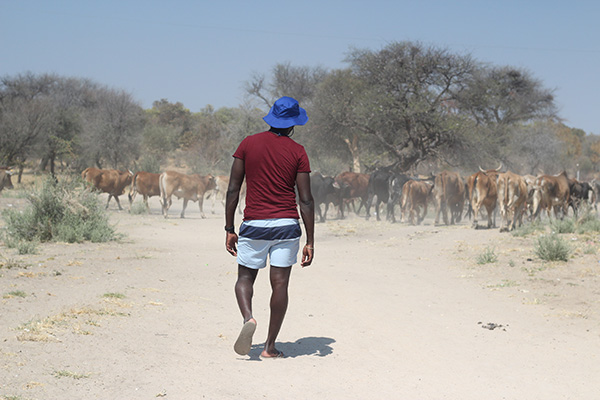Paheja Siririka
The health ministry says zoonotic diseases represent a major public health problem around the world due to humans’ close relationship with animals in agriculture, as companions and in the natural environment.
The deputy director in the epidemiology division within the health ministry, Iyaloo Mwaningange, told New Era that the increases in the movement of populations, climate change and habitat overlap between humans and animals provides new opportunities for the emergence and spread of diseases that adversely affect both human and animal health as well as food security.
“Namibia has been experiencing several zoonotic diseases in epidemic proportions such as Crimean – Congo Haemorrhagic Fever (CCHF), rabies and human cases of anthrax, which have been recorded each year,” she stated.
A zoonosis is any disease or infection that is naturally transmissible from vertebrate animals to humans. There are over 200 known types of zoonoses, comprising a large percentage of new and existing diseases in humans. Some zoonoses, such as rabies, are 100% preventable through vaccination and other methods.
Mwaningange noted that environmental degradation, with increasing population pressure, is steadily playing a role in the transmission of zoonotic diseases to humans, both in rural and urban settings.
“These events have highlighted that efficient government collaboration is critical for effective preparedness and response to these emergencies when they arise. To prevent associated morbidities and mortalities, the health ministry, in collaboration with other stakeholders, has responded and contained these events,” added Mwaningange.
Information provided by the ministry shows that some interventions to control and handle these diseases include supporting and advocating for anti-rabies vaccination efforts of domestic animals. The health ministry has also embarked on ongoing surveillance among humans and populations at risk such as livestock farming communities when it comes to Crimean-Congo Haemorrhagic Fever.
The Centres for Disease Control and Prevention (CDC) says although animals provide many benefits to people, they also cause many diseases.
“These germs can cause many different types of illnesses in people and animals, ranging from mild to serious illness, and even death. Animals can sometimes appear healthy even when they are carrying germs that can make people sick, depending on the zoonotic disease,” stated the CDC.
After six months of attempting to get feedback on the role of the agriculture ministry on the handling of zoonotic diseases in the country, efforts proved futile as the relevant department responsible for zoonotic diseases went mum.
Meanwhile, the World Economic Forum has called for strengthened international public-private collaboration between key stakeholders of the healthcare sector to mitigate and counter the varied and growing health risks posed by pathogens jumping from animals to humans.
“Zoonotic diseases pose a critical threat to global health security. An estimated 60% of known infectious diseases, and up to 75% of new or emerging infectious diseases are zoonotic in origin. Even before the current pandemic, it was estimated that zoonoses are responsible for 2.5 billion cases of human illness, and 2.7 million human deaths worldwide each year. Effective mitigation of the impact of endemic and novel zoonotic diseases requires multi-sectoral collaboration,” said Shyam Bishen, Head of Health and Healthcare at the forum.
The World Economic Forum is working with the Rockefeller Foundation and the Africa CDC Pathogen Genomic Institute to build public-private support for an international surveillance system that will help identify pathogens through strengthened monitoring and data-sharing mechanisms to prevent, diagnose and treat zoonotic diseases more effectively.


